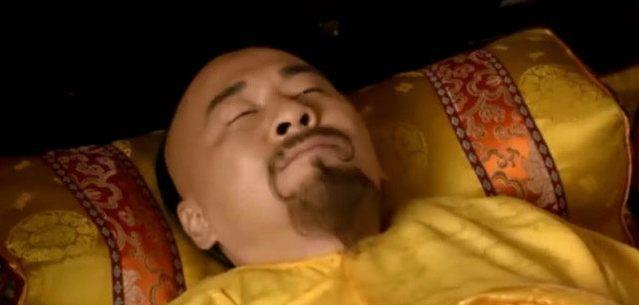I don't know if you have paid attention to the emperor's chronology of the Manchu Emperors, if you pay close attention to it, you may find that most of the Manchu Emperors did not survive the winter. I don't believe we'll take a look at them one by one now.
The founding emperor of the Manchu Qing Dynasty was Emperor Taiji, but The Emperor Taiji honored his father Nurhaci as the Qing Taizu, but these two were considered to be non-accidental deaths, so in fact, they were not praised, let's take a look at the Manchu Emperor after entering the customs.

And the emperor after entering the customs will also be counted from the Shunzhi Emperor. Among them, there were three who died in the first month: they were: Shunzhi Emperor Fulin, who died on the seventh day of the first month of the eighteenth year of Shunzhi; The Qianlong Emperor hongli died on the third day of the first lunar month of the fourth year of Jiaqing; The Daoguang Emperor Min Ning died on the fourteenth day of the first month of the 30th year of Daoguang.
In addition, the Kangxi Emperor – November 13; Tongzhi Emperor – the fifth day of the first month of December; Guangxu Emperor - October 21, just entered the winter; Xuantong Emperor – On October 17, the Yongzheng Emperor died on October 8, not yet established winter, but very close.
Therefore, it can be said that most of the emperors of the Manchu Qing Dynasty did not survive the winter.
So why is this? Is it all a coincidence?
The author believes that there is no coincidence in history, and such a problem is worth analyzing.
In fact, the death of old age and illness in life is nothing more than the following situations, the first is the natural death of old age and weakness, which is actually a natural phenomenon accompanied by organ failure.
The second is because of the death of the disease, which is an unnatural death, and generally it is ineffective and sudden, only related to the strength of the body, and has no obvious relationship with age, and is obviously related to the medical conditions and living conditions at that time.
The third kind of death is also unnatural death, but this kind of death is more affected by foreign objects, or accidental death, so some of it can also be called accidental death, but it cannot be changed concept.
Then, after analyzing it in this way, it can actually be found that, of course, first of all, let's distinguish these emperors. In terms of age, the Qianlong Emperor lived to be 89 years old, the Kangxi Emperor and the Daoguang Emperor both lived to be 69 years old, and under the conditions at that time, their deaths belonged to the first situation, that is, natural death.
The Shunzhi Emperor and the Tongzhi Emperor did not die more than 25 years old, and both suffered from diseases, so their deaths can be regarded as the second kind, that is, unnatural deaths, and have a certain suddenness. And it has a lot to do with the medical conditions and living conditions at that time.
For example, as mentioned earlier, they died in the winter, so why in the winter? In fact, it is because they are not in good health and are knocked down by diseases, and the winter weather at this time, this cold situation makes them even more unable to resist.
The weather in northern China has always been very cold, the emperors all lived in the Forbidden City, and in the winter the temperature would often reach about minus 20 degrees, although the low temperature may inhibit the development of bacteria and pests to some extent, but this weather will also have an impact on physical function. In the summer, the hot weather can easily induce the growth of bacteria, and at that time, people did not have any good way to inhibit the growth of bacteria, you know, penicillin these things are the products of the 20th century.
And such a slow weather induction, coupled with the emperors' long-term fatigue, led to a decline in immunity, and the result must be that the body will slowly collapse, and finally be knocked down in the cold and long season of winter.